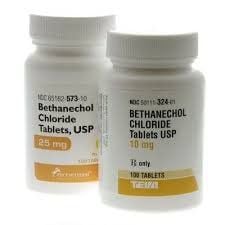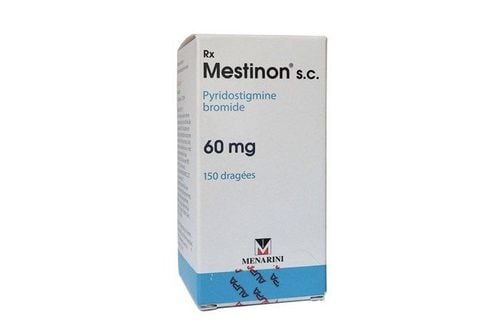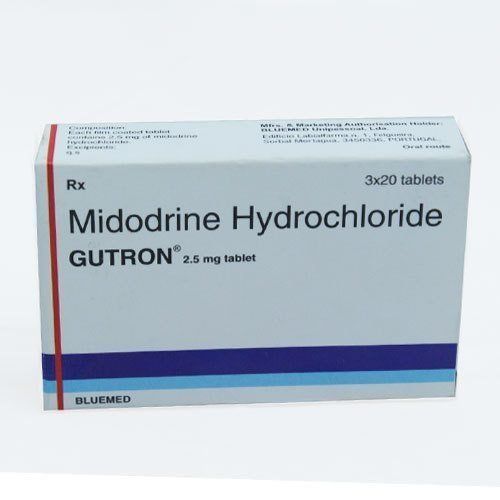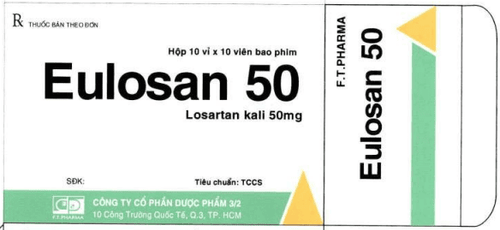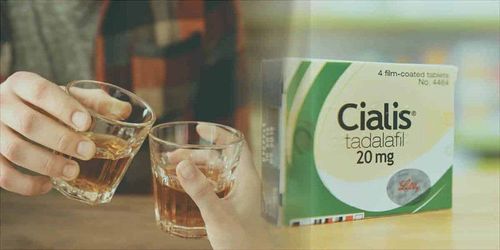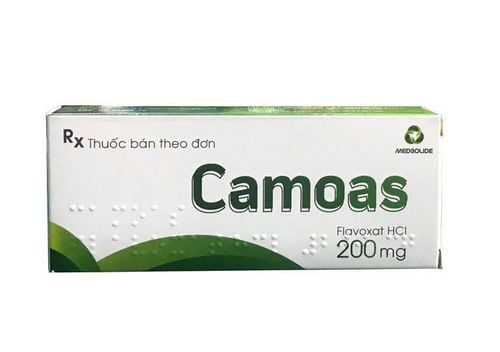This is an automatically translated article.
Polygintan is an oral antihistamine, whose main use is to treat allergic and sensitive cases such as: allergic rhinitis, allergic conjunctivitis, itching and urticaria. To use Polygintan safely and effectively, users should note a few things:1. What are the effects of Polygintan? Instructions for use
Polygintan medicine has the main ingredient is 2mg Dexchlorpheniramine maleate. The drug is used to treat allergic and hypersensitivity cases such as: allergic rhinitis, allergic conjunctivitis, itching and urticaria.
Suggested dosage:
For Polygintan 2mg tablets: Children from 6-12 years old: Take 1/2 tablet/time x 3.4 times; Adults and children > 12 years old: Take 1 tablet 6mg x 3.4 times/day. For Polygintan 6mg tablets: Adults and children > 15 years old: Take 1 tablet/time x 2 times/day (morning and evening). Note:
The oral doses are spaced 4-6 hours apart; Treatment duration must be short, treatment should be started in the evening because Polygintan can cause drowsiness.
2. Polygintan side effects
Due to the ingredient Dexchlorpheniramine, during treatment with Polygintan, users may also experience some adverse effects with varying degrees. Some effects of Polygintan on the autonomic nervous system can include:
Feeling of lethargy, drowsiness (especially in the first time of treatment); Anticholinergic effects dry mucous membranes, accommodation disorders, tachycardia, mydriasis, risk of urinary retention; Orthostatic hypotension; Balance disorder; Dizzy; Memory loss or impaired concentration; Ataxia, tremor (risk occurs in the elderly); Confusion, hallucinations; Agitation, irritability, insomnia (mainly in infants); Hypersensitivity reactions (rash, eczema, pruritus, purpura, edema, urticaria); Some effects of the drug on the blood include: Leukopenia, neutropenia, anemia and thrombocytopenia.
If after a period of treatment for allergies, hypersensitivity with Dexchlorpheniramine, symptoms persist or worsen (difficulty breathing, edema, underlying skin lesions...) or signs related to Viral infections require reevaluation of treatment.
3. Notes when using Polygintan
Polygintan is contraindicated in the following cases:
People who are sensitive to the ingredients in the drug (especially Dexchlorpheniramine); There is a risk of urinary retention due to disorders of the urethra, prostate gland; At risk of angle-closure glaucoma; Contraindicated to use 2mg tablets for children under 6 years old due to the characteristics of the dosage form; Contraindicated to use 6mg tablets for children under 15 years old; Women who are breast-feeding (because of its sedative properties and small amounts can be passed into breast milk). Cases requiring caution when taking Polygintan include:
Elderly patients (risk prevention: orthostatic hypotension, dizziness, drowsiness, chronic constipation, prostate swelling); Patients with severe hepatic/renal impairment (precaution of the risk of drug accumulation); Pregnant women in the last 3 months of pregnancy (if taking drugs, the neurological and digestive function of the baby should be monitored for some time after birth). Other notes:
Because alcohol increases the sedative effect of H1-antihistamines, absolutely avoid drinking alcohol, taking alcohol-containing drugs during treatment with Polygintan; Limit driving and operating machinery due to the drowsiness effect (especially the first time taking the drug).
4. Polygintan drug interactions
To ensure safety when taking the drug, the combination of Polygintan should be avoided with the following drugs:
Other central nervous system depressants: Including analgesics, antitussives of the Morphine family, antidepressants have sedative effects, sleeping pills of the group Benzodiazepines, group of drugs Barbiturate, Clonidine and other drugs of the same family, sleeping pills, Methadone, neuroleptics...; Atropin drugs and drugs with similar effects to Atropine such as: Imipramine antidepressants, anti-cholinergic anti-Parkinsonian drugs, antispasmodics, Disopyramide, Phenothiazine neuroleptics... may increase Side effects of atropine group such as urinary retention, constipation, dry mouth. Above is all information about Polygintan drug, patients need to carefully read the instructions for use, consult a doctor / pharmacist before using. Absolutely do not arbitrarily buy Polygintan medicine at home because there may be unwanted side effects.




